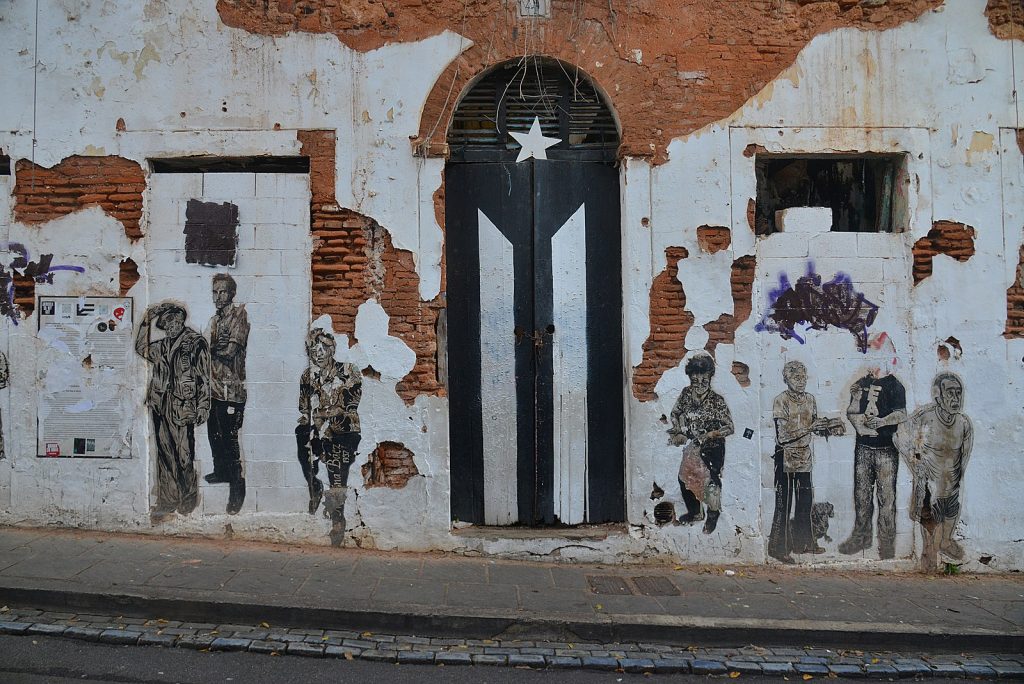
Cryptocurrencies, blockchain, and Puerto Rico. Words that currently generate discussions throughout the different communities on social media. Every week there is news about some cryptocurrency. It’s either about gaining/losing value or a blockchain investment. But, it wasn’t until recently that those words transcended from the technology sector to the financial, media, academia, government, and other sectors.
Legend has it that, in 2009, Satoshi Nakamoto (a person or group of people, we don’t know their real identity) published a white paper and the code that put into practice the white paper. This white paper described Bitcoin, the first blockchain applied as a digital currency. From that point on, that form of blockchain application has spread like wildfire.
We cannot assure Satoshi Nakamoto’s intent when writing this white paper because we do not know their real identity. Nevertheless, the loath for the current economic system has spread the Bitcoin wildfire. This loath has brought multiple ideologies together. The press has barely discussed this, which may cast some doubt on the objectivity of the articles. Unfortunately, these articles generate discussions on social media, half informing the general public.
Yes, cryptocurrencies and blockchain are indeed a way to invest money. But, it is crucial to understand that, to many, this technology provides a possible solution to a global problem: the abuse of centralized economic power.
Fiat Money and Dollar Hegemony
Fiat money refers to government-issued currencies not backed by commodities such as gold or silver. This includes the American dollar, Euro, Yen, Pound, and all the reserve money. This means that the government decrees the dollar’s value based on the offer and demand of the printed money circulating worldwide. However, one of the most sought-after materials in modern society is petroleum. To buy and sell oil, it’s necessary to have the American dollar. This transactional power elevated the dollar to the status of reserve currency. The United States can maintain persistent commercial deficits by issuing assets at a low rate. Thus the dollar retains its hegemonic power in the world economy.
At the domestic level, in the beginning, fiat money seemed to bring development and prosperity to the American economy. Still, the economic development of the past three decades has marked a break in the middle class. Financial institutions and multinational companies have enjoyed the benefits of the dollar hegemony. Meanwhile, workers have had to cover the costs.
Long terms effect of fiat money
The government stopped incentivizing the Industries that provided economic prosperity to the middle class, like equipment or textile production. So, these industries transferred abroad . Multinational companies replaced small businesses. Maintaining dollar dominance requires that the American economy shift from a production-based economy to a capital gain economy. This shift has deepened the inequality in the middle class and the political polarization of its constituents.
Also, there is some evidence that the United States has intervened in politics in other countries. An irrefutable example was the invasion and overthrow of the Iraq regime under the weapons of mass destruction pretext. The overthrow happened when Saddam Hussein, Iraqui president, announced that they valued petroleum with euros instead of dollars. Therefore, it is inevitable that a type of resistance will come up.
Bitcoin Proposal
To generalize, Bitcoin set the blueprint for trading a digital currency without needing a bank account. Unlike the current system requiring a bank account to transfer digital money, you can compare transactions with bitcoin to when you pay with cash. You take out the cash from a wallet and give it to the person you are paying without needing a bank to perform that transaction for you.
Blockchain attracts because it depends on the data exchange and validation between the network participants without a central entity. Bitcoin is attractive because it uses blockchain to remove the need for a central bank that establishes exchange prices and money transactions and print or destroy money. Also, all the blockchain code is public so it’s not a secret how it works. Furthermore, through the digital wallet people can access all the transactions on the blockchain.
Bitcoin in different parts of the world
This new mental model places the trust on the network instead of on the government or its institutions. Every day more people put their faith in the network, proving that it currently works. According to Reuters, people in Lagos, Nigeria have used bitcoin. Nigerians use bitcoin to protect and grow their businesses while their coin continues to devaluate. People from Venezuela and Argentina have similar stories.
Bitcoin Opposition: Environment
The American press is full of news that criticizes Bitcoin because of its environmental impact. Critics focus on Bitcoin mining issue that it requires a lot of energy. Cambridge University describes on its Bitcoin Energy Consumption Index portal (CBECI),: “It is essential to distinguish between electricity consumption and environmental footprint. The first concerns the total amount of electricity used by the Bitcoin mining process. The latter concerns the environmental implications of Bitcoin mining. What ultimately matters for the environment is not the level of electricity consumption per se, but the carbon intensity of the energy sources used to generate that electricity.“
Energy generation always leaves some kind of carbon footprint, but the carbon footprint that Bitcoin has generated is statistically insignificant even in its most primitive moment. Citing the CBECI, again: “… let’s use the annualized power consumption estimate from CBECI as of July 13th, 2021, which corresponds to roughly 70 TWh. Let’s also assume that all this energy comes exclusively from coal (the most polluting fossil fuel) and is generated in one of the world’s least efficient coal-fired power plants (the now-decommissioned Hazelwood Power Station in Victoria, Australia). In this worst-case scenario, the Bitcoin network would be responsible for about 111 Mt (million metric tons) of carbon dioxide emissions, accounting for roughly 0.35% of the world’s total yearly emissions“.
The articles that appeal to the problem of climate change to promote the dislike towards Bitcoin purposely dismiss the different initiatives coming from within the network to promote the use of renewable energy. In Saratoga County, New York, the oldest running hydroelectric plant in the United States, if not the world, recovered its total functional capacity after they decided to mine bitcoin. On the other hand, the company Square commissioned a study that proves the correlation and benefits of using Bitcoin for renewable energy. We should not lower the guard in terms of not requiring this industry to watch out for carbon emissions. But, Bitcoin is not the environmental threat that the ordinary press describes.
Crypto-Colonialism and Puerto Rico
I can point to 2018 as the specific year Puerto Rico “met the crypto world.” That year, a multimillionaire became a resident of the island. Press articles such as The Hippie King of Cryptocurrency de Rolling Stones and episodes like Puerto Crypto de NPR described how this person attracted a “crypto community” to settle in Puerto Rico to implement and proliferate the crypto economy.

This foreign group captured continuous attention that it instilled a misconception in a part of the Puerto Rican. This sector believes that neoliberals, imperialists, or rich people pushed cryptocurrencies. It’s important to distinguish between someone who uses cryptocurrencies and actively searches to pay fewer taxes.
This antipathy has allowed that sector to stop objectively assessing the value that cryptocurrencies or blockchain can bring to Puerto Rico. If Bitcoin is a tool that enables exchanges without a central coin like the dollar, why not study how others use it worldwide? If Puerto Rico’s colonial status limits its economic relations with the rest of the world, why not use this tool to explore this relationship?
I’m not arguing that the economy of Puerto Rico should only be based on cryptocurrencies or blockchain. I do not believe that neither cryptocurrencies nor blockchain will save the economy of Puerto Rico. I continue to observe how there is no turning back with Bitcoin. It’s difficult to move on from the idea that you can own decentralized, transparent, and fast money.
If you are interested in getting some cryptocurrencies, you may want to read Incorporating Digital Assets into Your Finances.
I’ll leave you with this video that explains why it is vital to not ignore this new technology.
Thanks for reading!
You can get a new post notification directly to your email by signing up at the following link.
Related Articles
The following CTRL-Y articles are related somewhat to this post. You may want to check them out!:
- Incorporating Digital Assets into Your Finances
- HTTP Status Puerto Rico
- NodeJS Layered Architecture
- A Morning in a Front End Developer’s Mac Terminal
- Resources for Newbie Web Coders
- 5 Reasons Why Women Should Consider a Career in Web Development
- Night Owl Home Office
- Filtering with GraphQL and Prisma: What NOT to Do
By the Way – A playlist for you
This post was written while listening to this playlist by DJ Erol Alkan. This playlist includes most of the repertoire of songs that Erol has played during the past years.